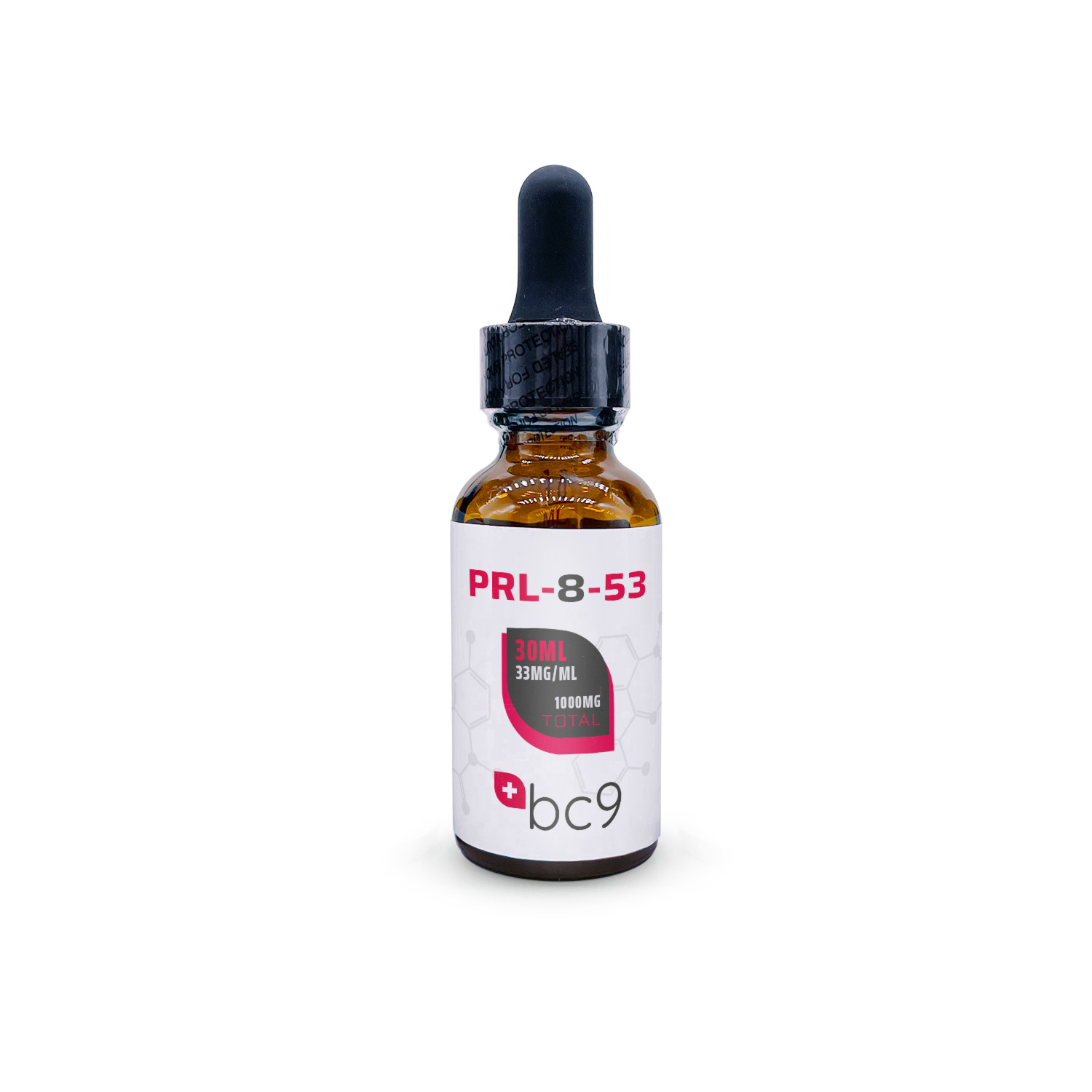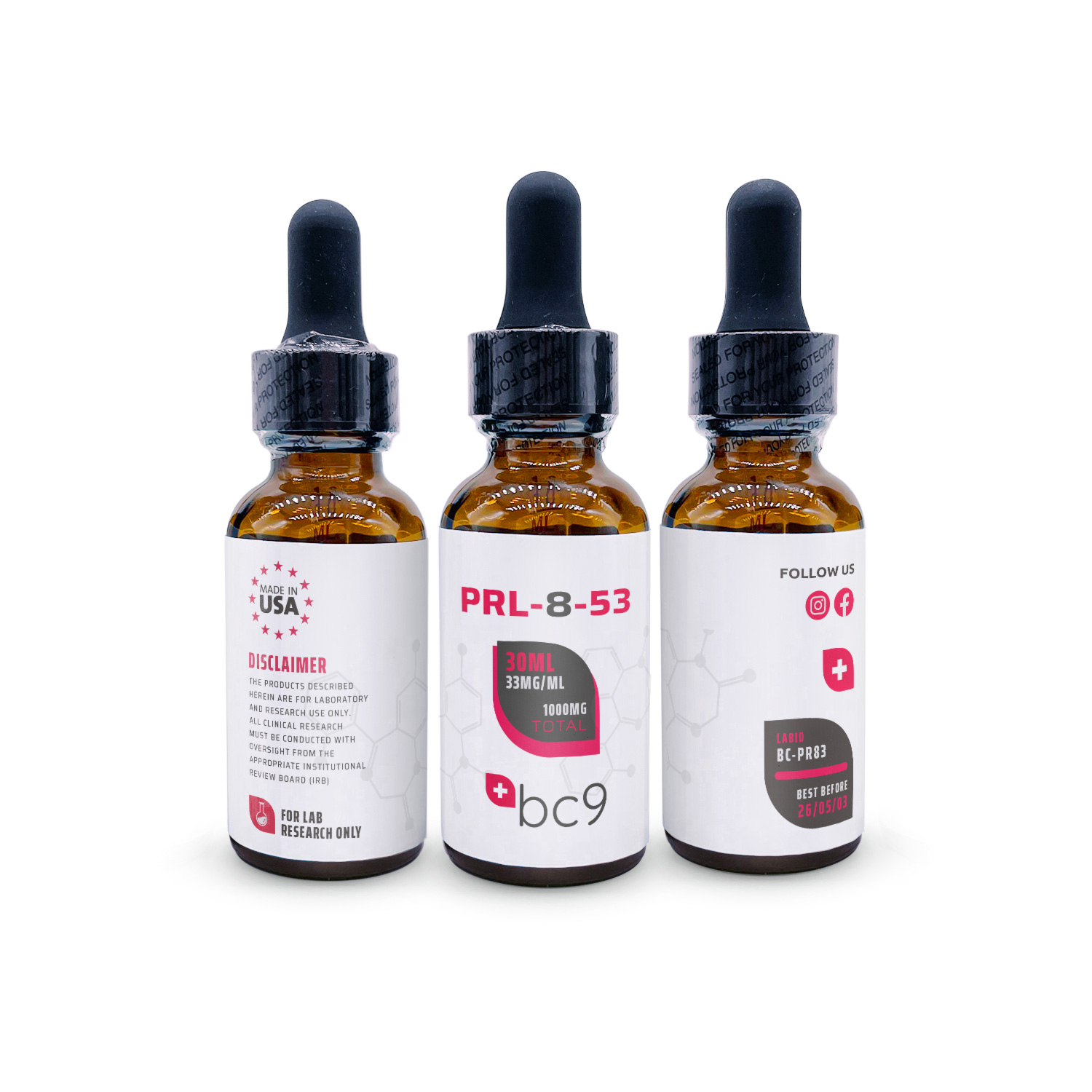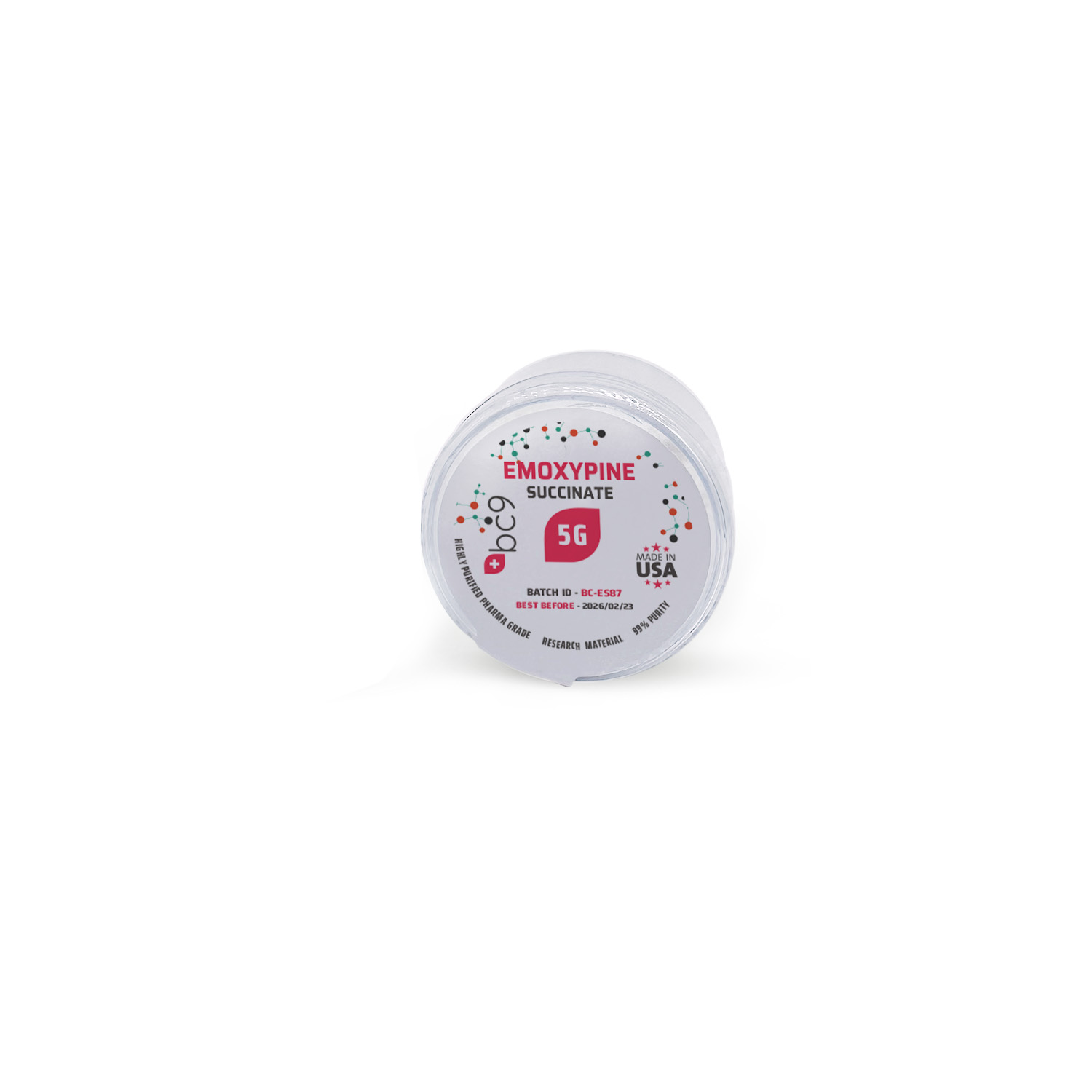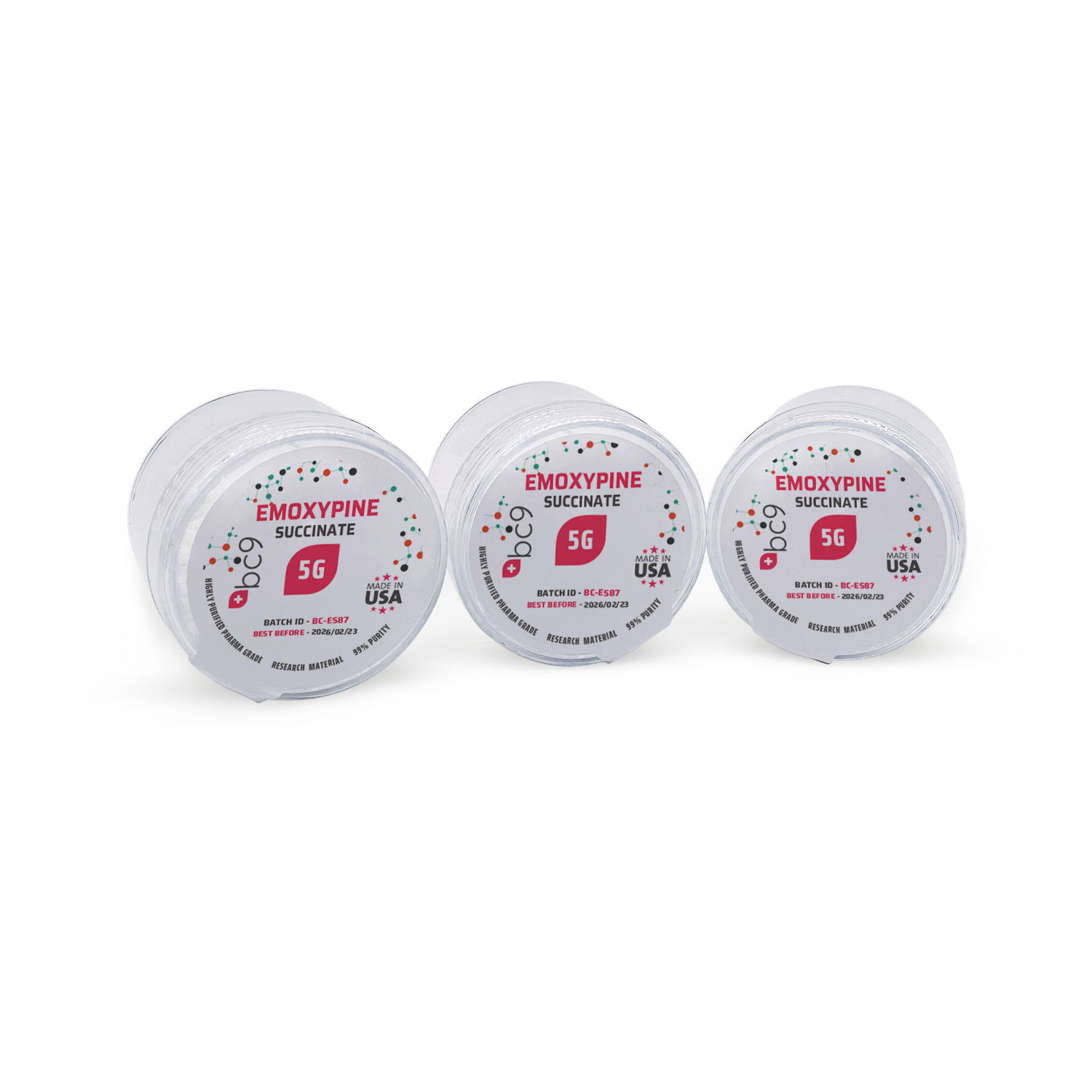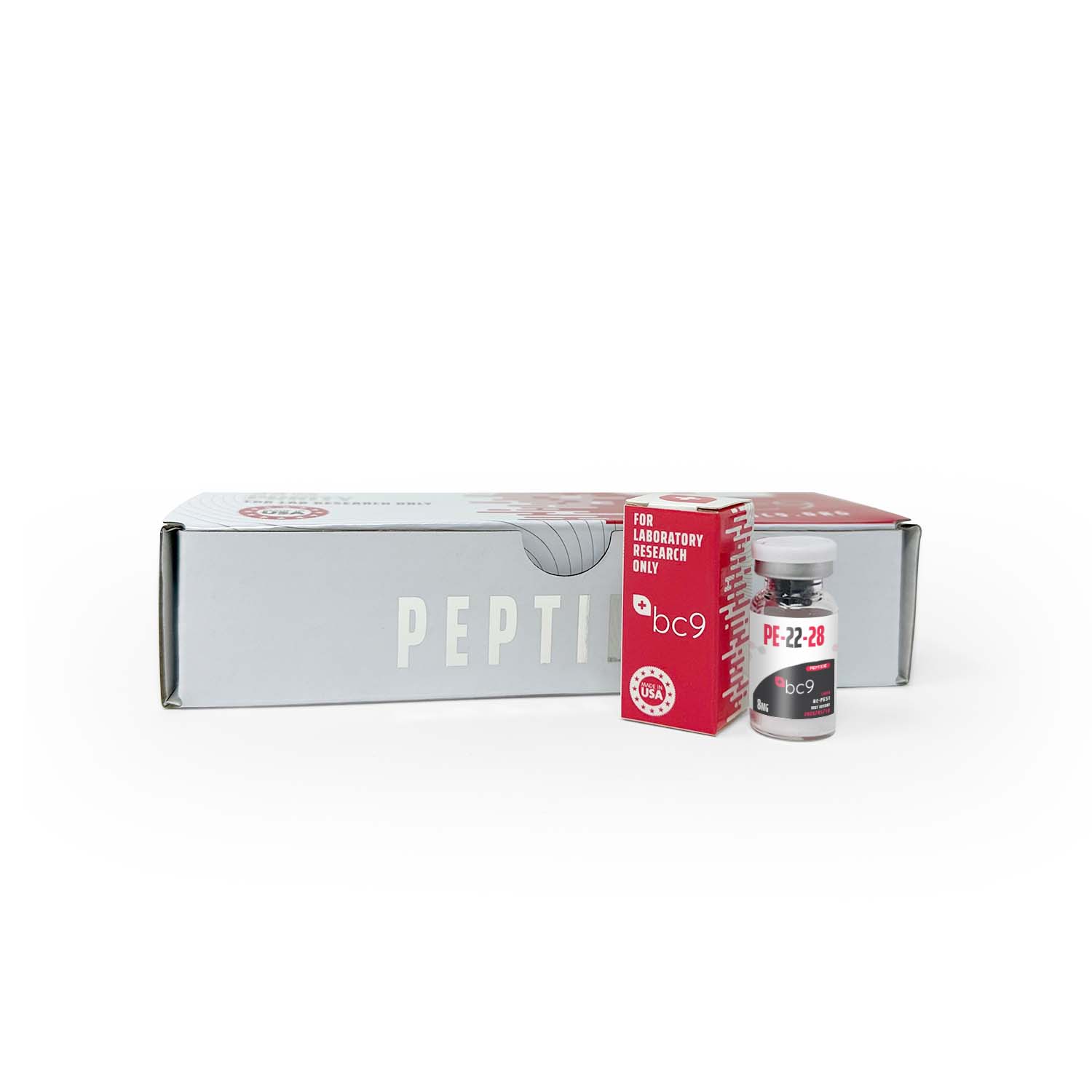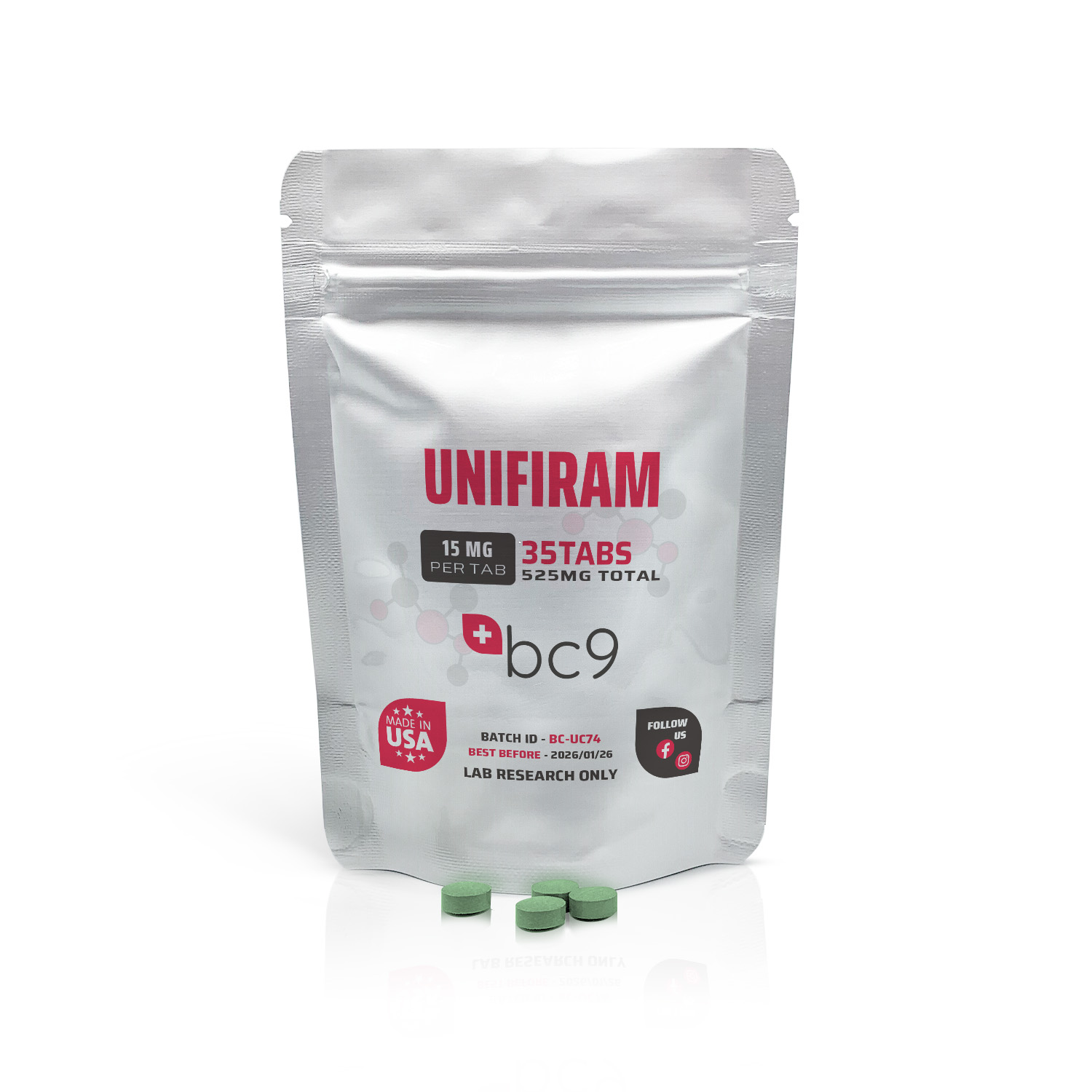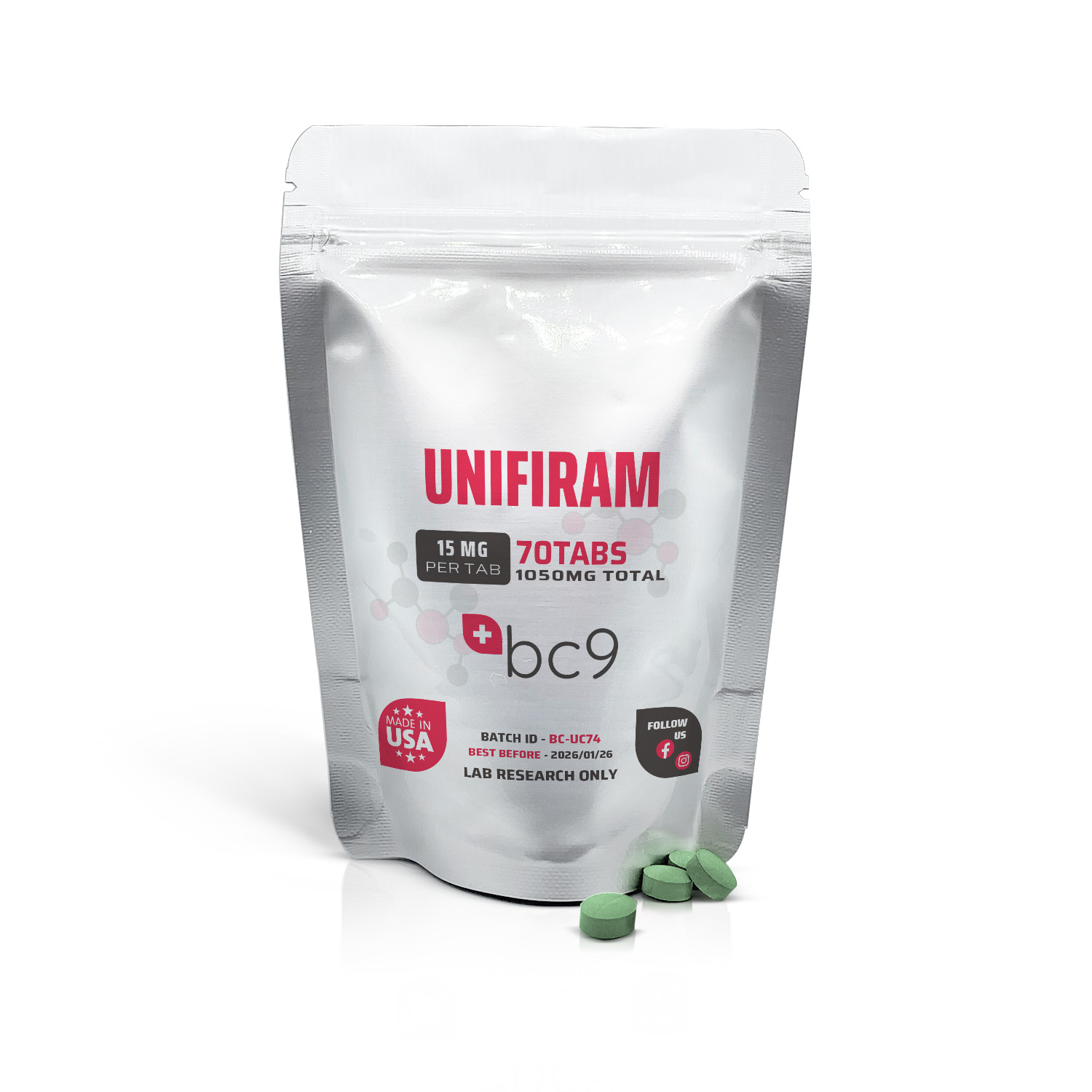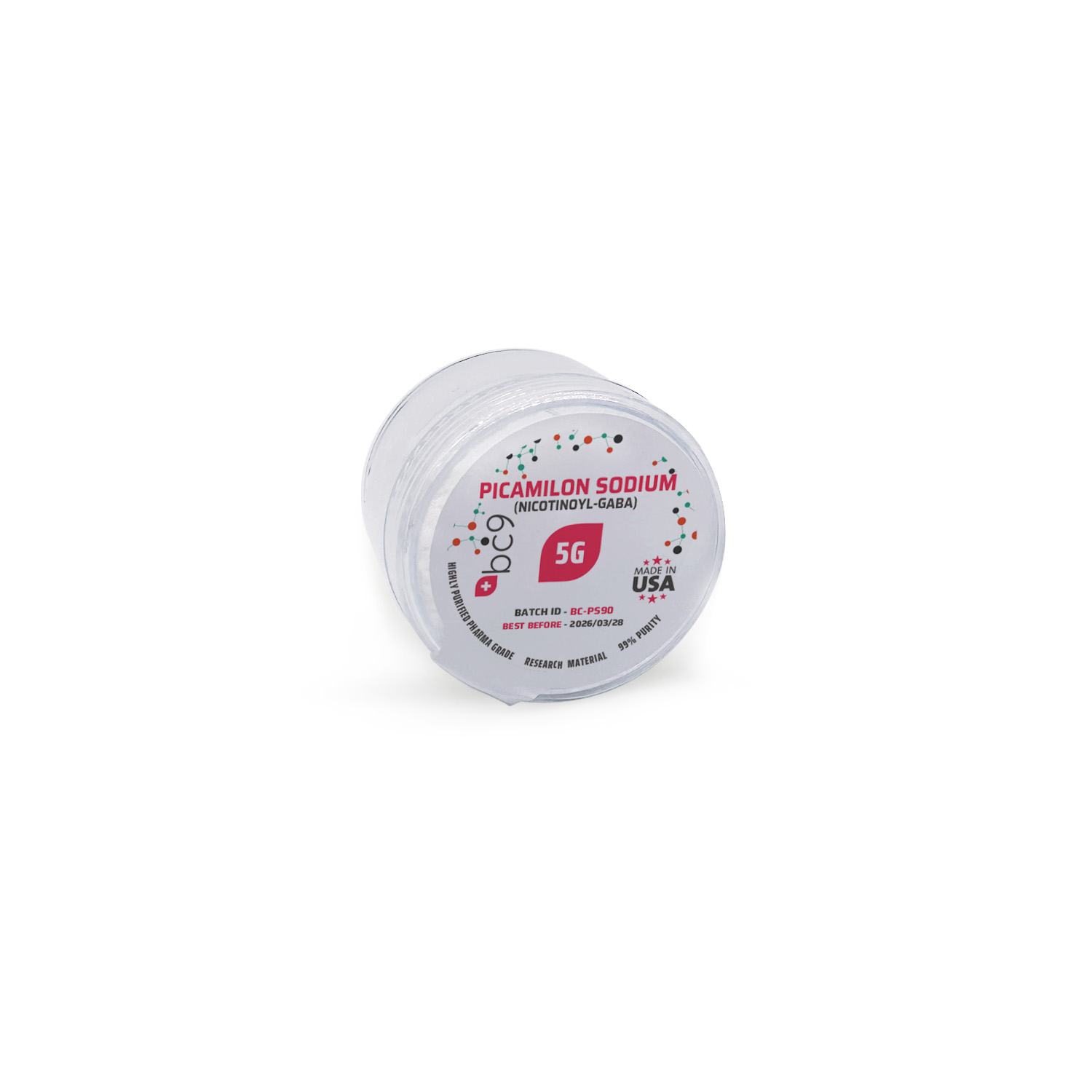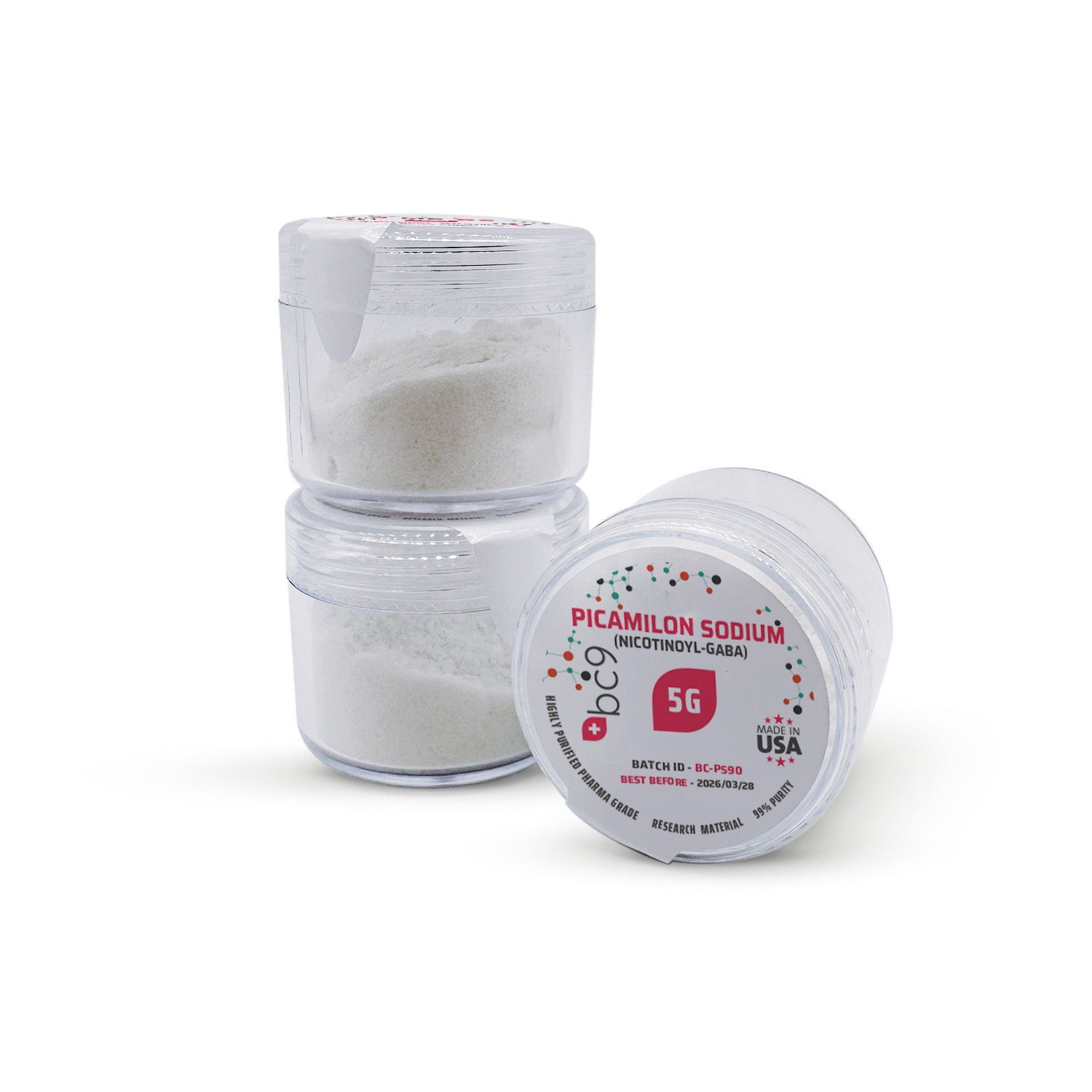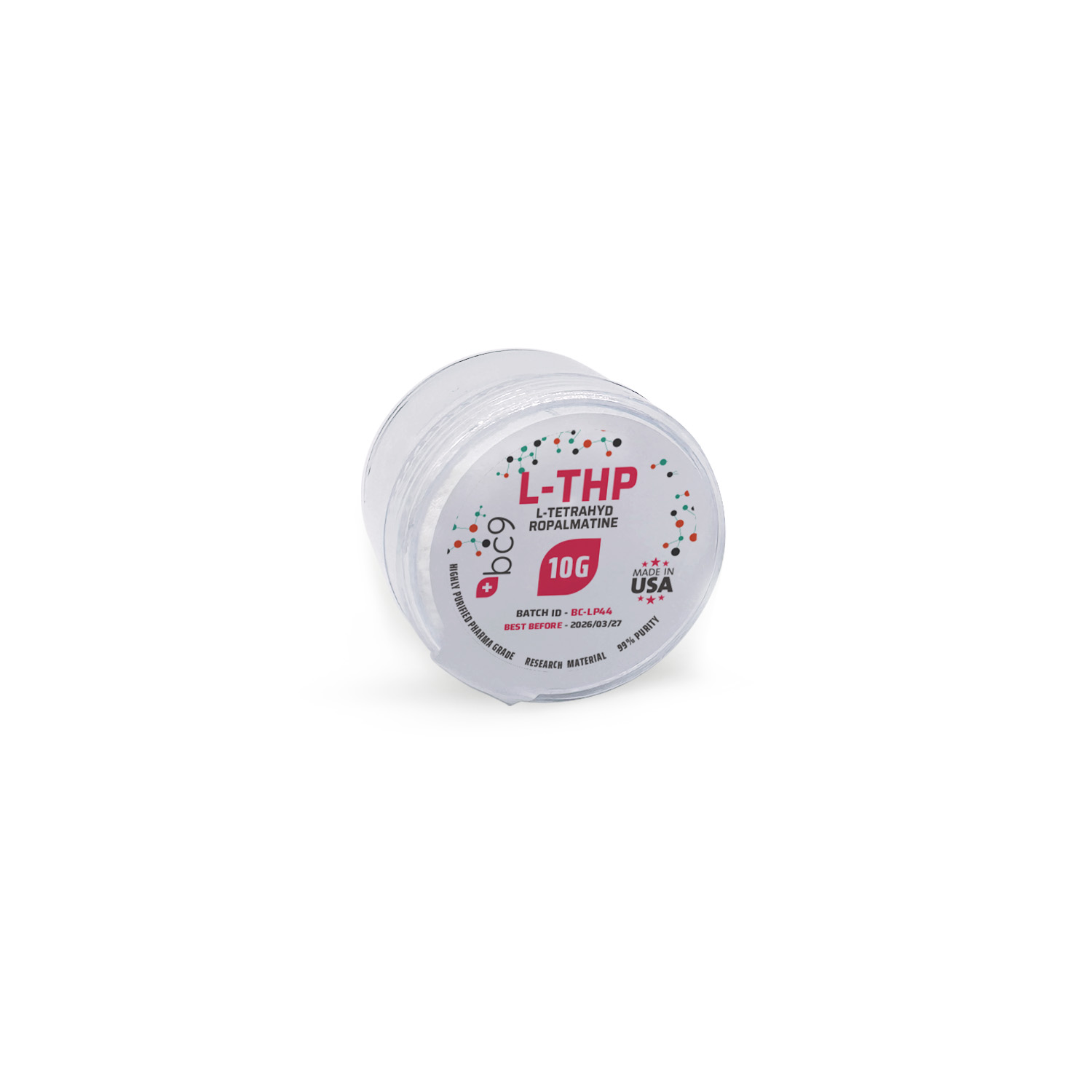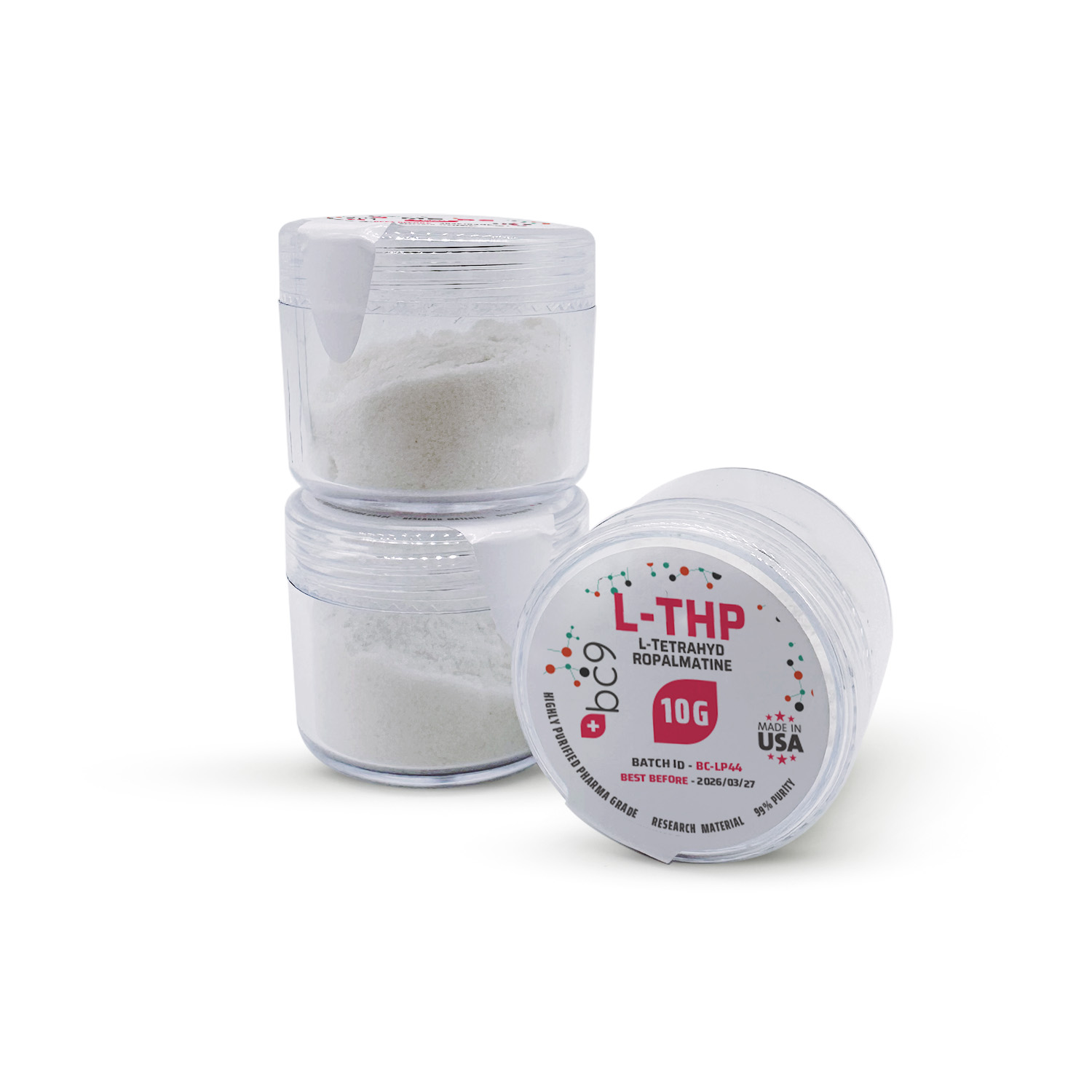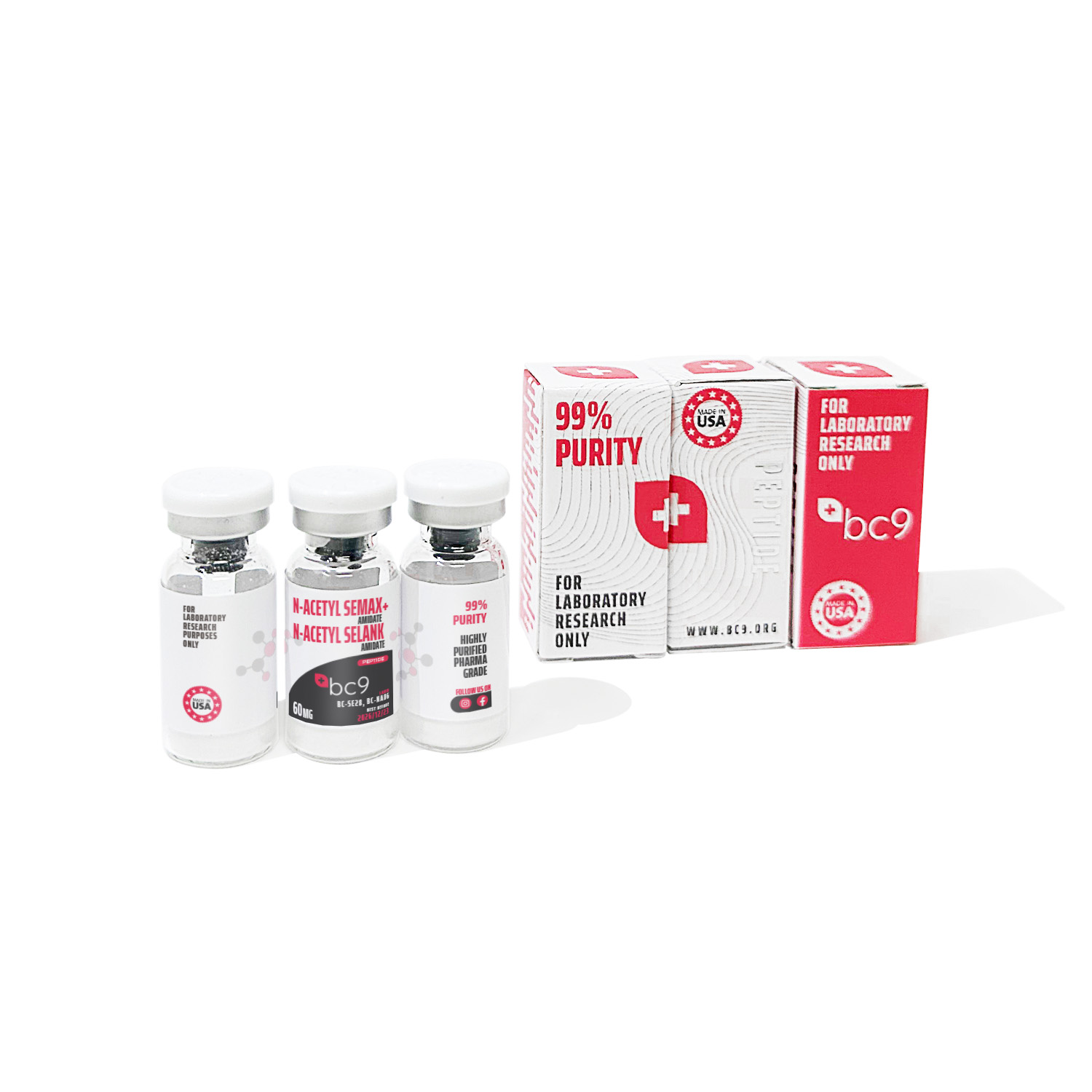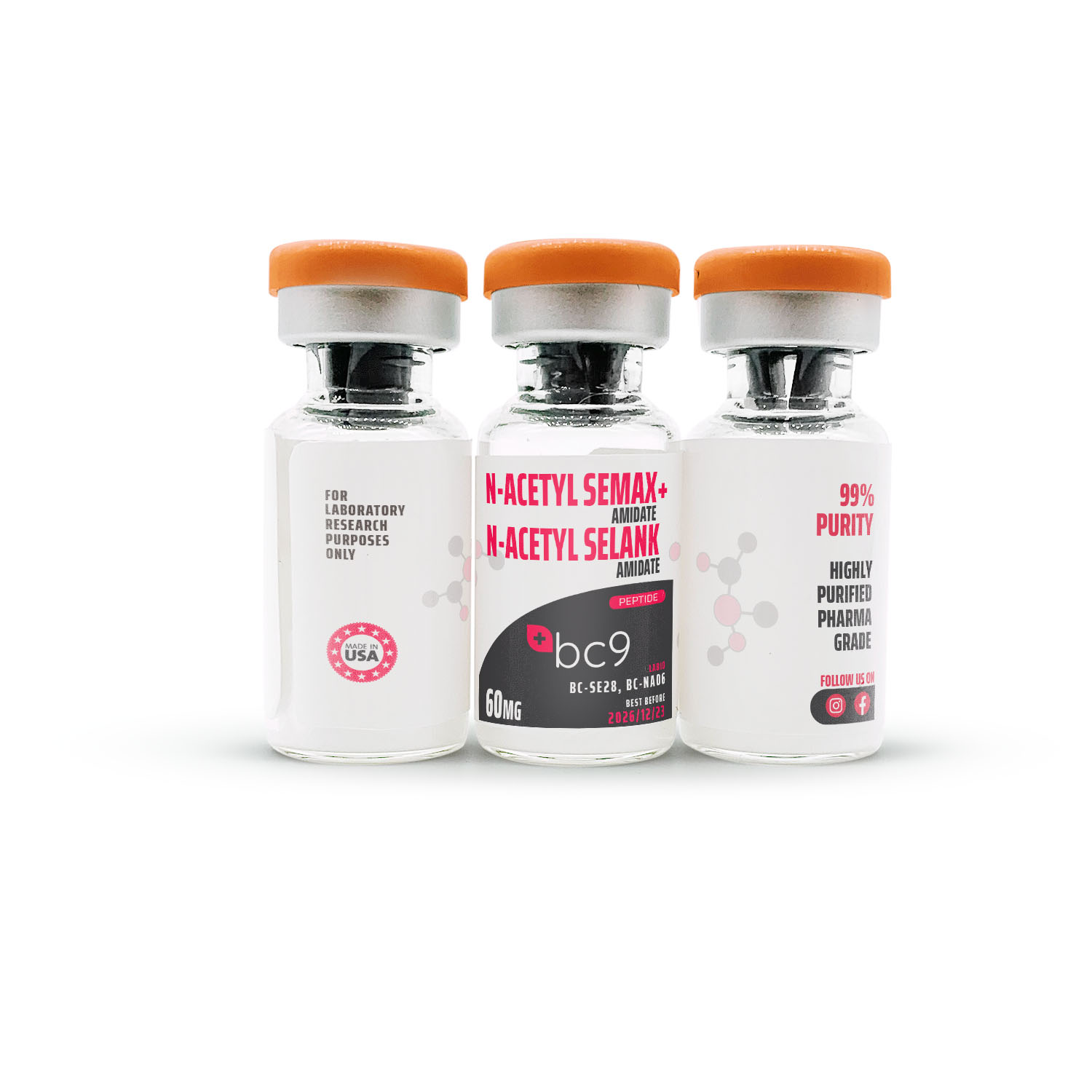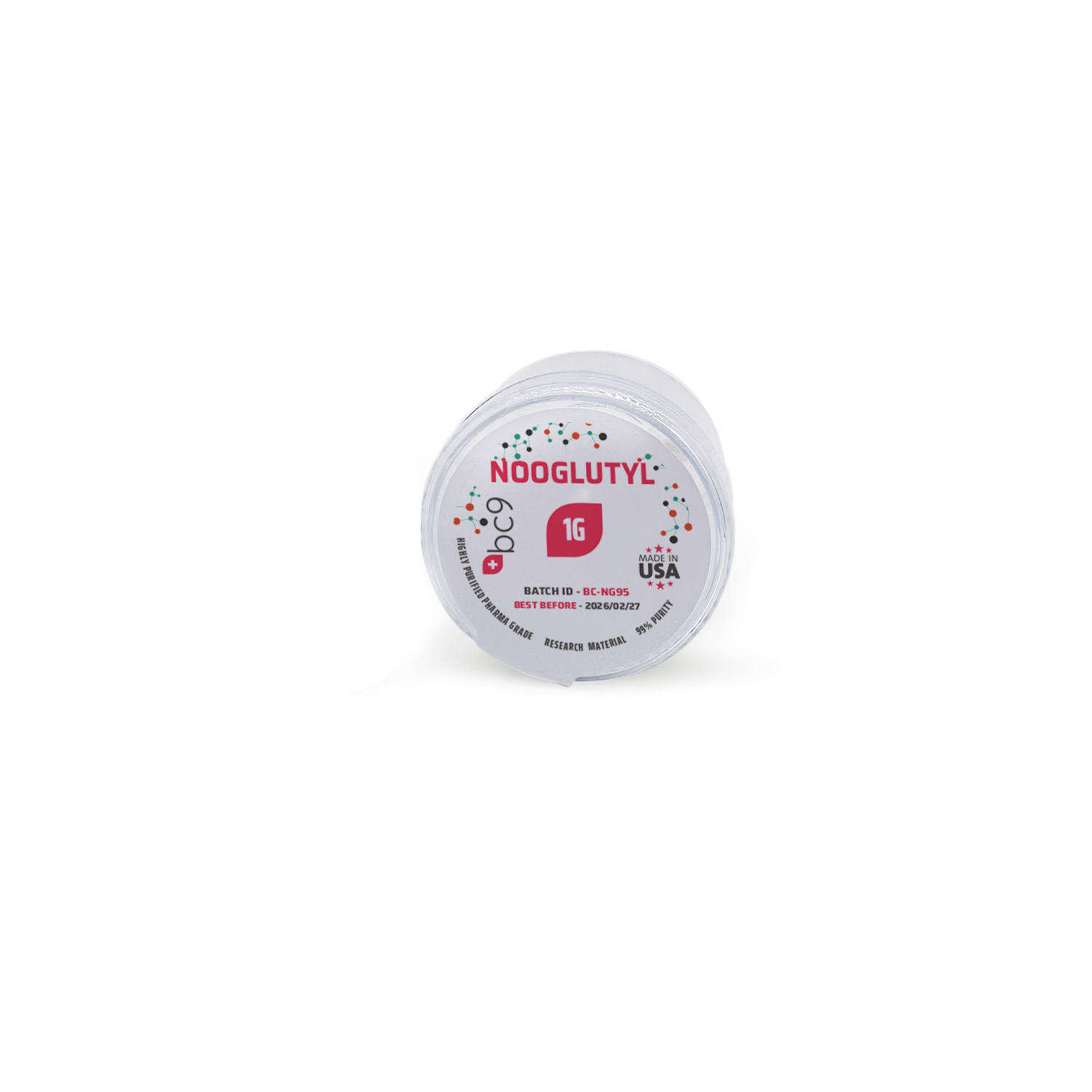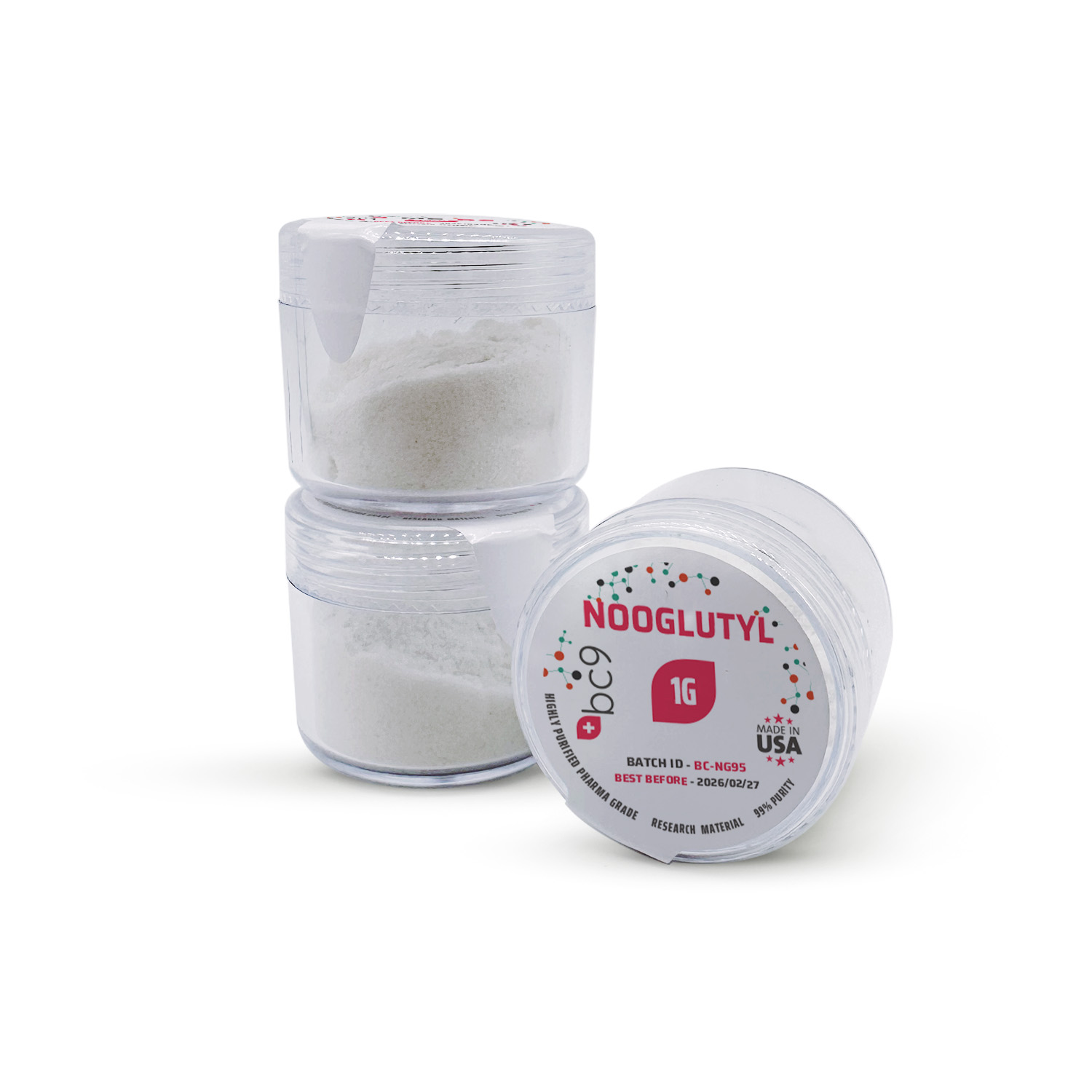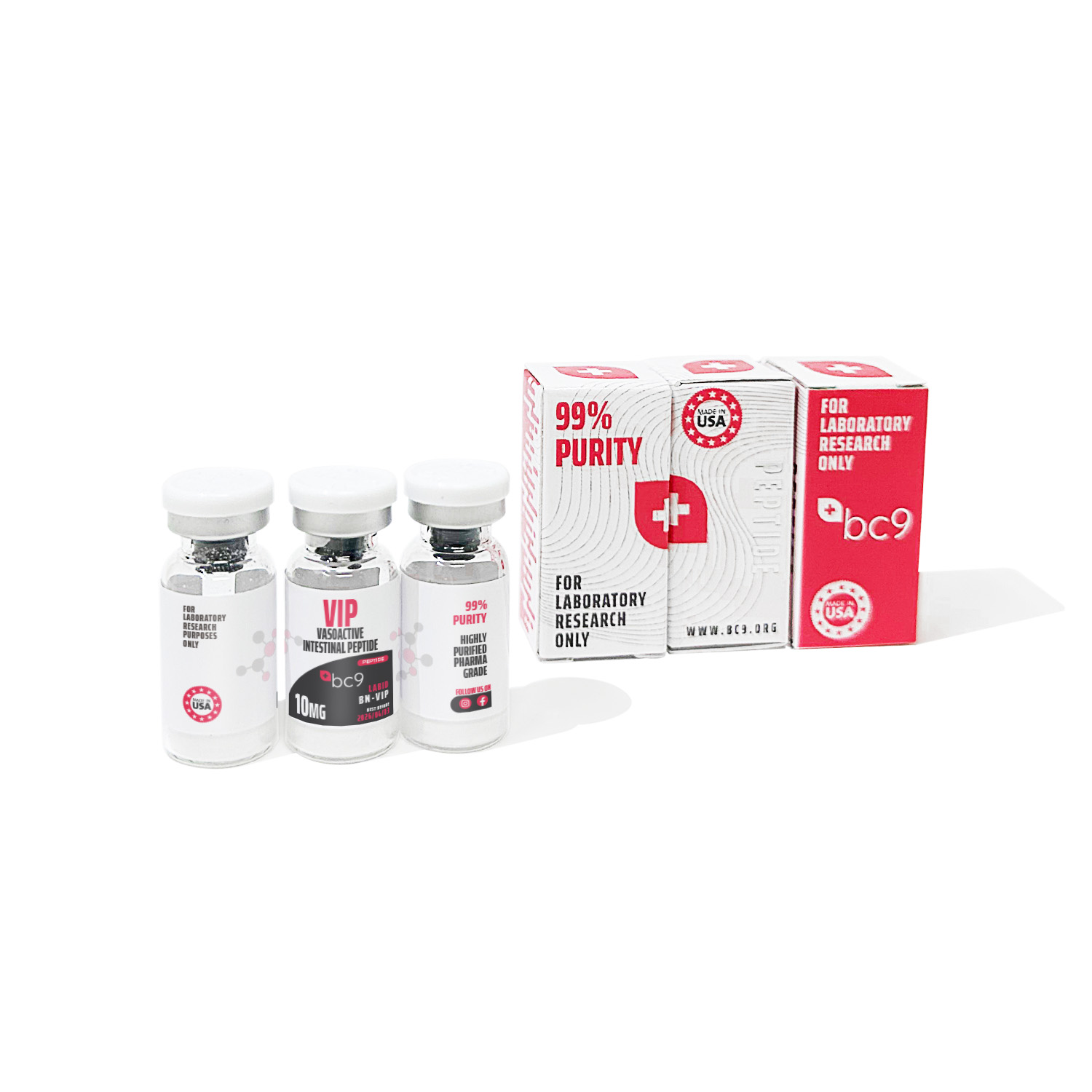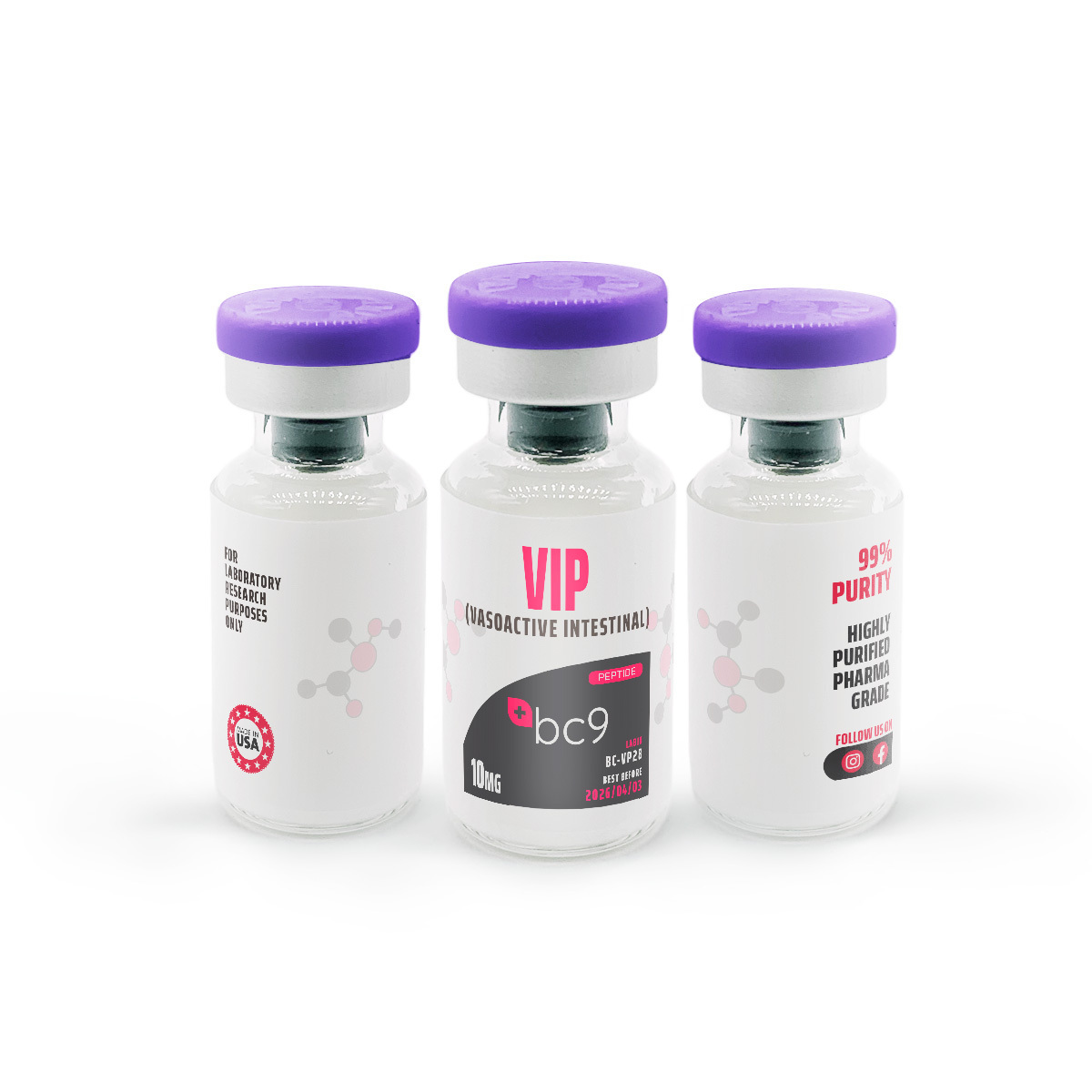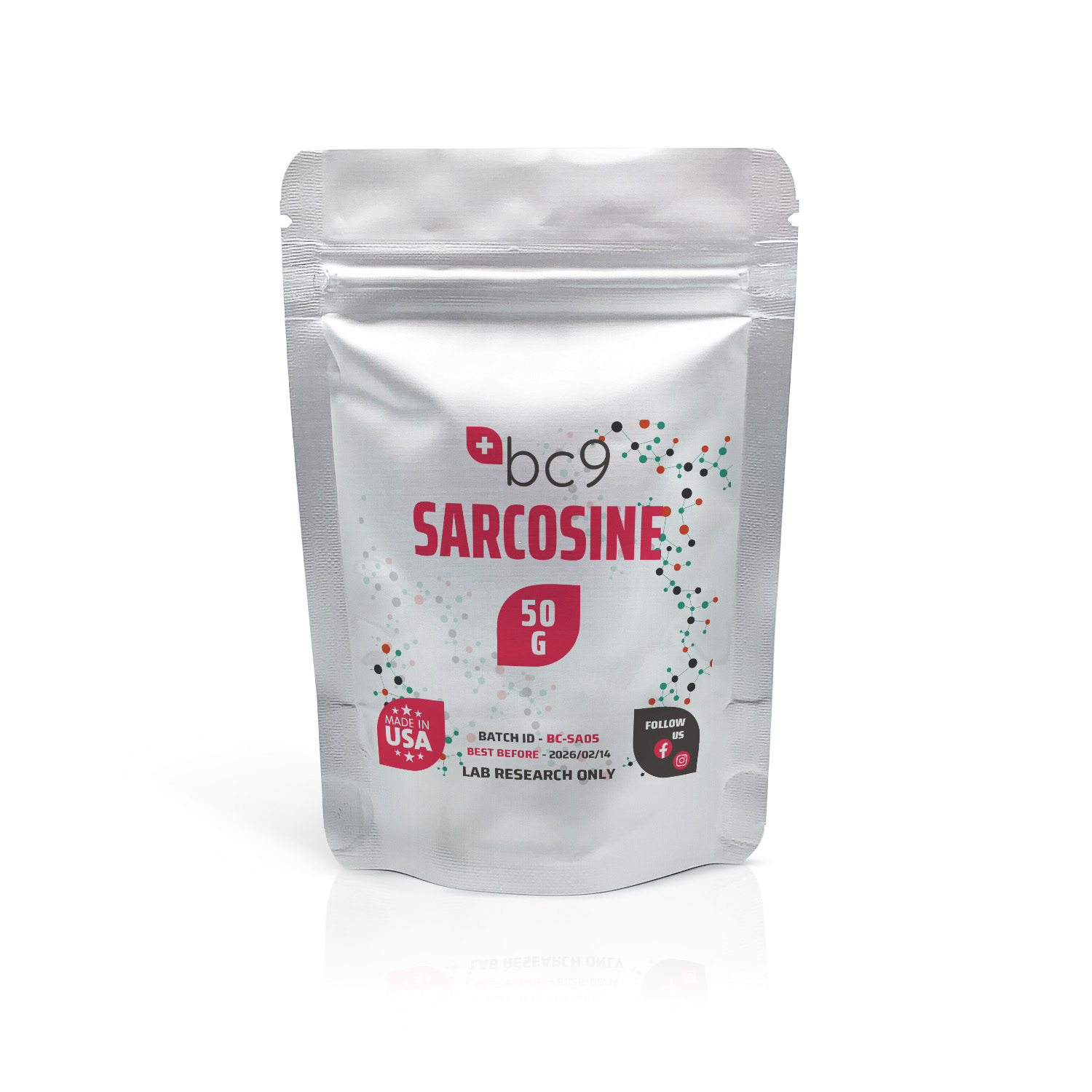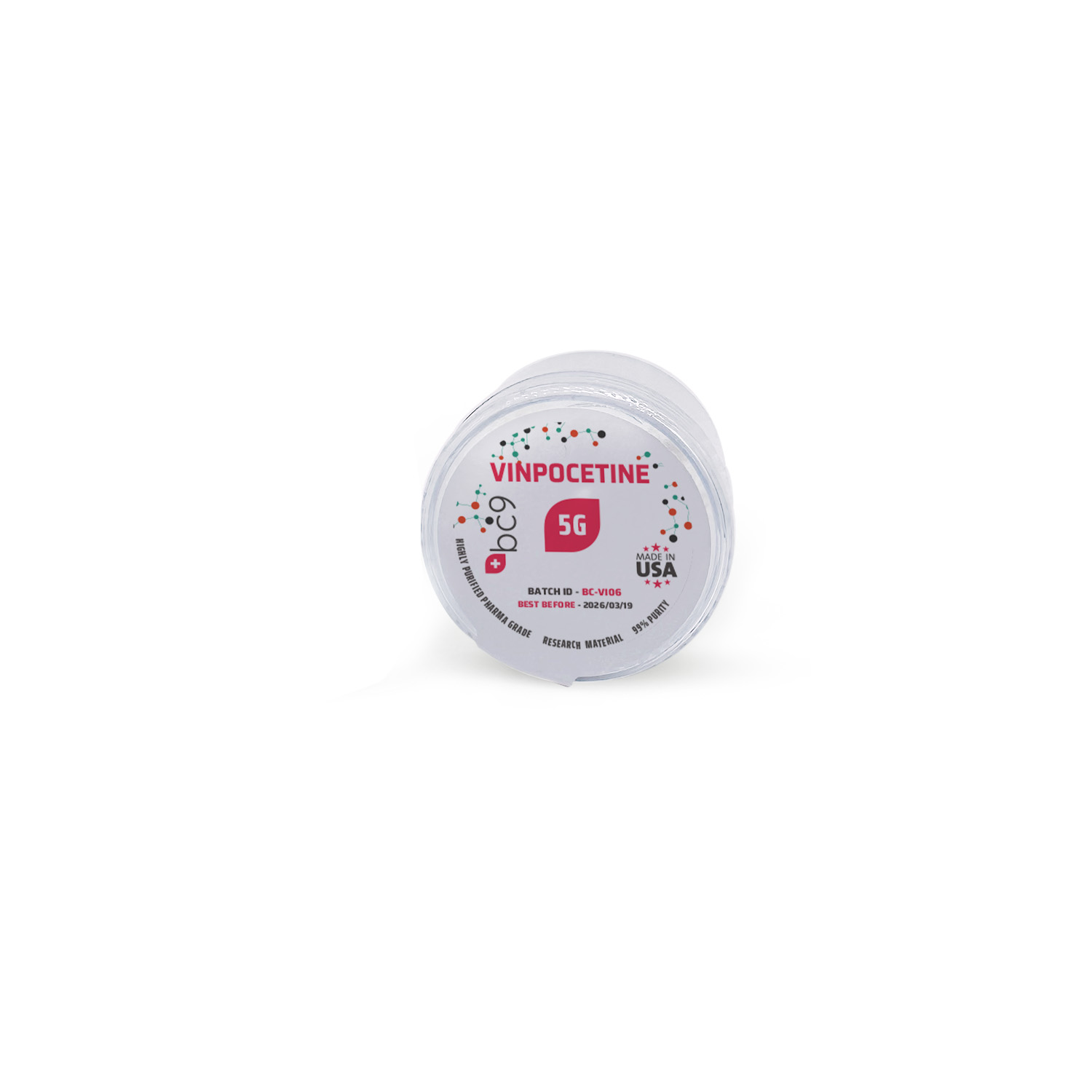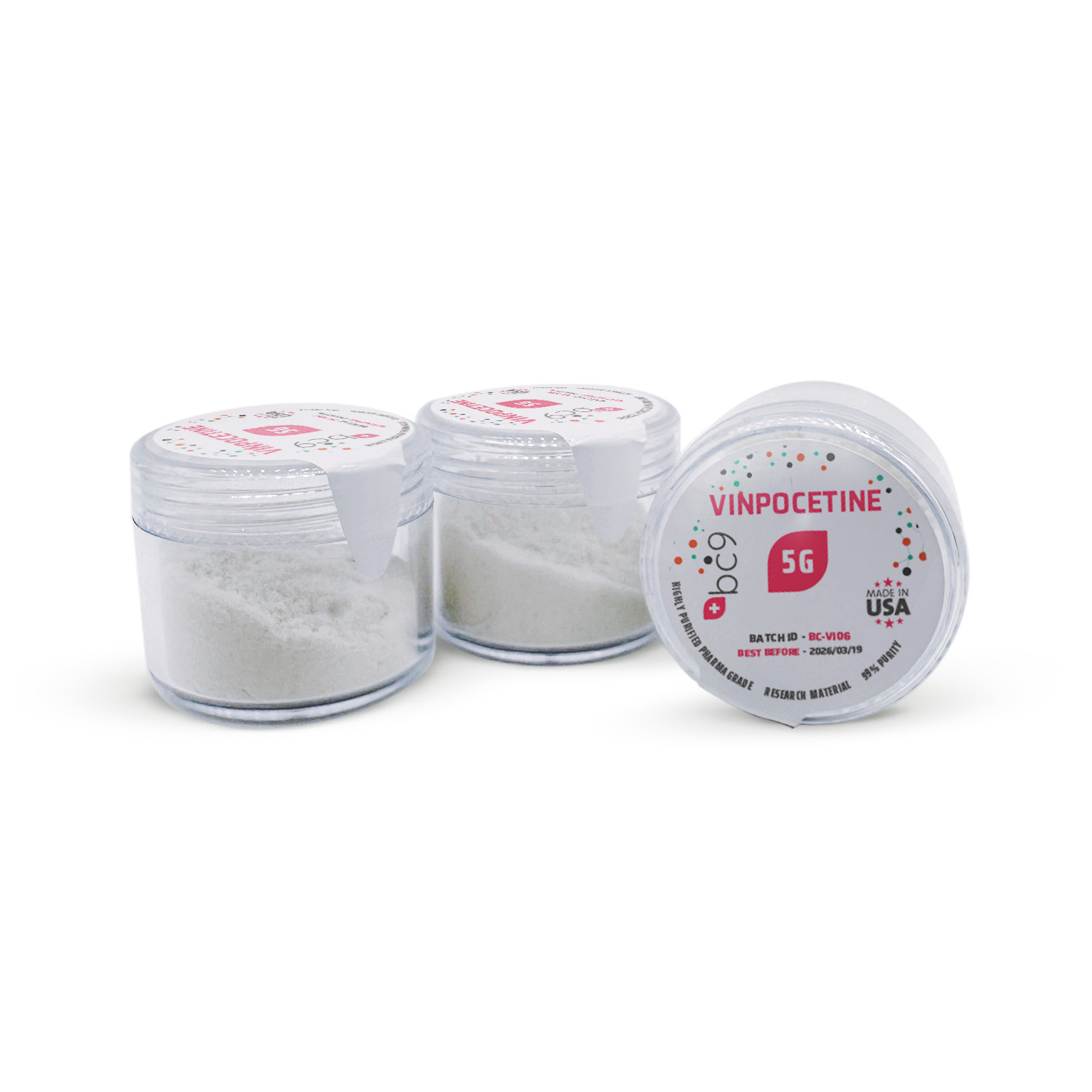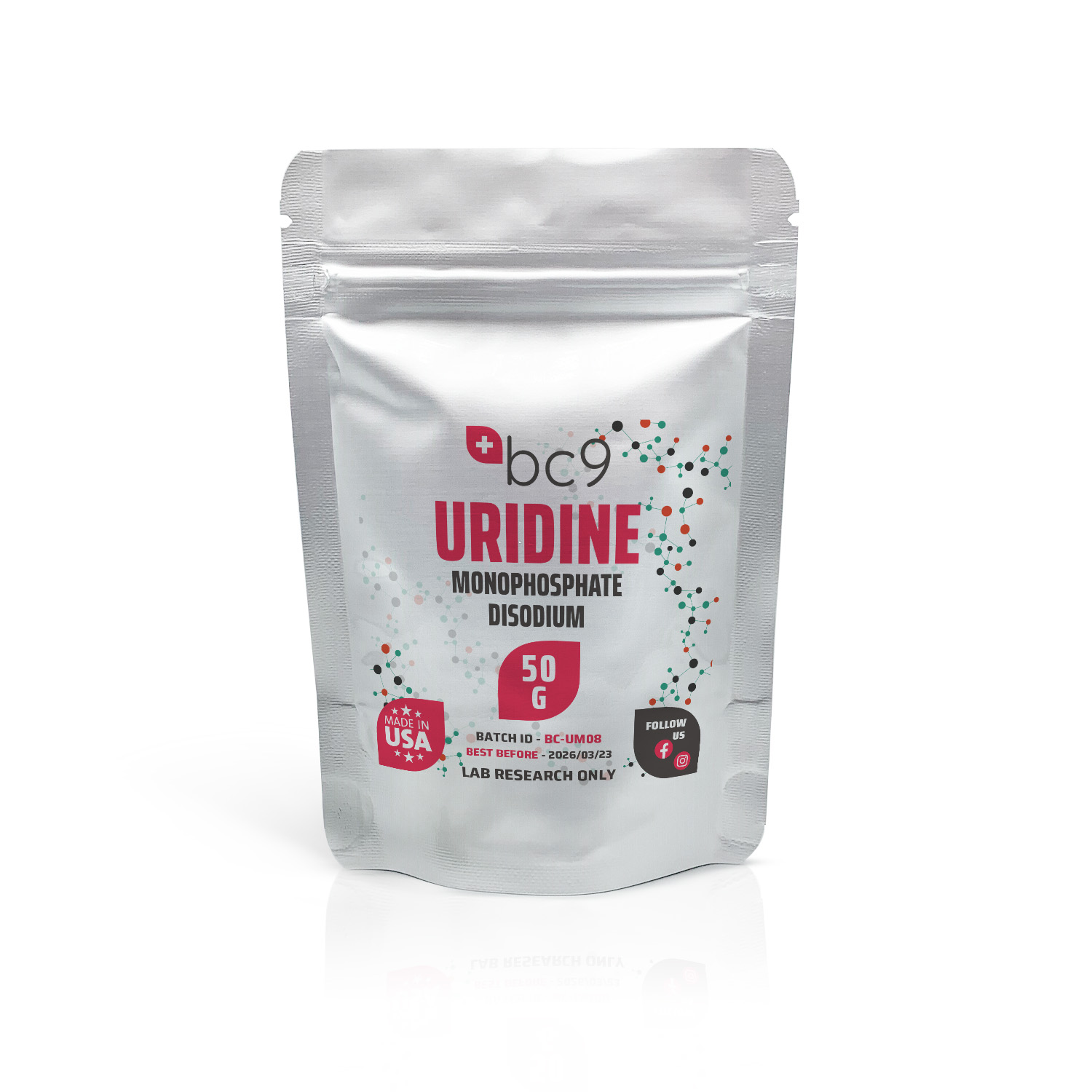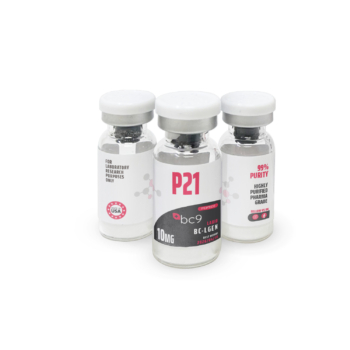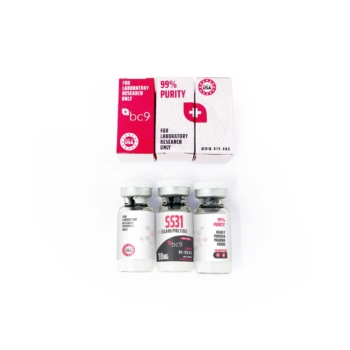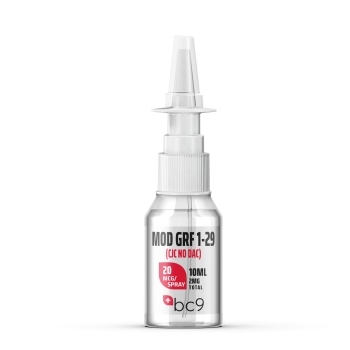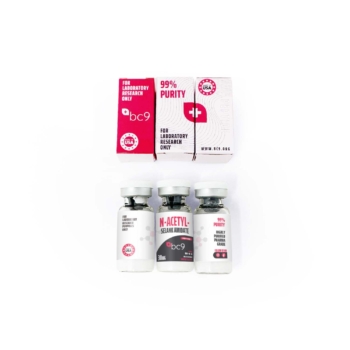Showing 25–36 of 54 results
Cognitive Products on Sale:
Cognitive
How do Cognitive Compounds Work?
Cognitive compounds work through various potential mechanisms to potentially enhance cognitive function, memory, focus, and overall brain health. Some of the key mechanisms by which cognitive compounds exert their potential effects include:
- Neurotransmitter Modulation: Many cognitive compounds have the potential to act on neurotransmitter systems, such as acetylcholine, dopamine, serotonin, and glutamate. By modulating the levels or activity of these neurotransmitters, cognitive compounds can potentially enhance synaptic communication, which is essential for learning, memory, and cognitive function. Nefiracetam, belonging to the racetam family, is a nootropic compound renowned for its capacity to modulate neurotransmitter systems, notably glutamate and acetylcholine. Nefiracetam potentially enhances synaptic communication and cognitive function by bolstering glutamatergic and cholinergic neurotransmission. This augmentation in neurotransmitter activity is evidenced by numerous clinical research studies demonstrating nefiracetam’s positive impact on learning and memory. Animal studies, for instance, illustrate that rats supplemented with nefiracetam exhibited enhanced recall and memory formation. [R]
- Neuroprotection: Some cognitive compounds may have neuroprotective properties, which may help protect neurons from damage and degeneration. This can involve reducing oxidative stress and inflammation, common factors associated with age-related cognitive decline and neurodegenerative diseases. Tesamorelin is a peptide that has shown promise in research for its potential neuroprotective effects. A study found that giving Tesamorelin to older subjects with mild memory impairments or healthy older subjects boosts thinking skills. Tesamorelin improved their ability to plan and think clearly and helped them remember things briefly. [R]
- Enhancement of Brain Blood Flow: Adequate blood flow to the brain is crucial for delivering oxygen and nutrients, removing waste products, and supporting overall brain function. Cognitive compounds may enhance cerebral blood flow, improving oxygenation and nutrient delivery to brain cells.
- Neurogenesis and Synaptogenesis: Neurogenesis refers to generating new neurons, while synaptogenesis refers to forming new synapses (connections) between neurons. Some cognitive compounds may promote neurogenesis and synaptogenesis, facilitating brain plasticity and cognitive flexibility.
- Modulation of Brain Waves: Brain waves are rhythmic electrical patterns generated by the brain and are associated with different states of consciousness, such as relaxation, focus, and alertness. Some cognitive compounds may modulate brain wave activity, promoting states conducive to optimal cognitive performance.
- Antioxidant and Anti-inflammatory Effects: Oxidative stress and inflammation can impair cognitive function and contribute to neurodegenerative diseases. Many cognitive compounds possess antioxidant and anti-inflammatory properties, helping to reduce oxidative damage and inflammation in the brain.
- Enhancement of Neurotransmitter Receptor Sensitivity: Cognitive compounds may increase the sensitivity of neurotransmitter receptors in the brain, making them more responsive to neurotransmitters like dopamine or acetylcholine. This can enhance signal transmission between neurons and improve cognitive function.
Cognitive compounds work through multifaceted mechanisms to support and enhance various aspects of brain health and cognitive function. However, the specific effects of each compound can vary, and further research is needed to understand their mechanisms of action and potential therapeutic applications fully.
BC9’s Cognitive Category
Embark on a journey through the fundamentals of cognitive research in our Cognitive category. We’ll demystify the ABCs of cognitive exploration, providing researchers with insights into essential characteristics, applications, and the invaluable role of tablets in advancing scientific understanding. Rest assured, our tablets undergo rigorous 3rd party testing, and each batch is accompanied by Certificates of Analysis (COAs), ensuring the utmost quality for your research endeavors.
Explore Potential Benefits and Effects with BC9’s Cognitive Category
Potential for Improved Memory
Certain compounds are being investigated for their potential to enhance memory formation, retention, and recall, which can benefit learning and academic or professional performance. Noopept is a popular compound that has been studied for its potential memory-enhancing and neuroprotective effects.
A study using an animal model of passive learning avoidance found that Noopept heightened the neuronal response to the micro-application of acetylcholine. Acetylcholine is a neurotransmitter crucial for learning, memory, attention, and various autonomic bodily processes. [R]
Potential for Enhanced Focus and Attention
FLmodafinil is a prime example of a compound with the potential capacity to heighten focus, concentration, and attention span. By doing so, subjects can potentially maintain prolonged engagement and productivity.
FLmodafinil boosts wakefulness by potentially heightening dopamine levels in research subjects’ brains. This neurotransmitter can potentially maintain alertness in research subjects by reducing melatonin levels, commonly called the sleep hormone. [R]
Neuroprotection
Some compounds may potentially have neuroprotective properties, which can help safeguard brain health and reduce the risk of cognitive decline associated with aging or neurodegenerative diseases.
A great example is the versatile compound Dihexa. Multiple animal studies have been conducted on Dihexa. These studies have shown that it has the potential to be a treatment for Alzheimer’s disease. In addition, it has been found to potentially enhance the acquisition, retention, and recall of learning and memory. [R] [R]
Potential for Increased Cognitive Flexibility
Certain compounds may have the potential to enhance cognitive flexibility, allowing subjects to adapt to changing situations, think creatively, and problem-solve more effectively.
In a study featured in the Archives of Neurology, the administration of Tesamorelin to individuals with mild cognitive impairment or healthy older adults exhibited positive effects on cognition.
Tesamorelin notably enhanced executive function and, to a lesser extent, short-term verbal memory. In healthy adults, cognitive function saw improvement, while the anticipated decline in functional abilities among those with mild cognitive impairment was mitigated. [R]
Frequently Asked Questions
What are Cognitive Research Compounds?
Cognitive research compounds are substances that researchers investigate for their potential to enhance cognitive functions, such as memory, attention, and executive function.
How do Cognitive Research Compounds work?
The mechanisms of action of cognitive research compounds vary depending on the specific compound. Some may enhance neurotransmitter activity, promote neuroplasticity, or protect neurons from damage.
What are some examples of Cognitive Research Compounds?
Cognitive research compounds include natural substances like Lion’s Mane Mushroom, Bacopa monnieri, and Rhodiola rosea, as well as synthetic compounds like Noopept, Modafinil, and Racetams.
Are Cognitive Research Compounds Legal?
The legal status of cognitive research compounds varies by country and specific compound. BC9 Sells Cognitive compounds for research purposes only.
